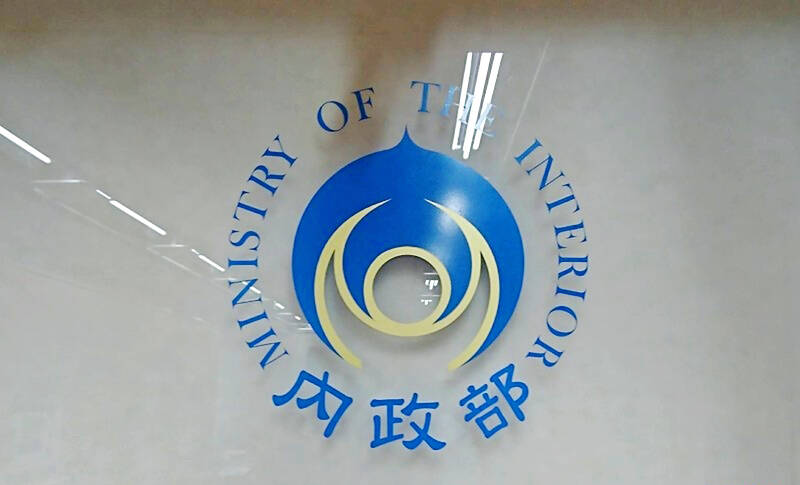An amendment requiring government permission for people working with government-funded core technologies to travel to or transit through China entered a mandatory 60-day notification period on Thursday, the Ministry of the Interior said yesterday.
The amendment to the Regulations Governing Entry Permission to Mainland China for Government Employees and Persons with Special Status in the Taiwan Area (台灣地區公務員及特定身分人員進入大陸地區許可辦法) would implement requirements introduced following an earlier amendment to the Act Governing Relations Between the People of the Taiwan Area and the Mainland Area (台灣地區與大陸地區人民關係條例) made on June 8, the ministry said.
The June amendment was made in response to frequently reported cases of Chinese-funded enterprises disguising themselves as Hong Kong or other foreign-funded firms to poach Taiwanese talent or steal “core” technologies, the Mainland Affairs Council said at the time.

Photo: Chen Yu-fu, Taipei Times
Following the amendments, employers of those working with core technologies who wish to enter or transit through China would be required to notify the National Immigration Agency and related agencies, and to receive permission from a review committee before the trip can be made, the ministry said.
The review committee would comprise members of the interior ministry, the National Security Bureau, the Ministry of Justice, the Mainland Affairs Council and “other relevant agencies,” the interior ministry said.
The amendment to the act specifically added a section on “Individuals or members of legal persons, organizations or other institutions entrusted, subsidized or invested to a certain level by government agencies (institutions) who engage in matters involving national core technologies,” and stipulates that such people would need permission to travel to China for up to three years after they cease working with such technologies.
Under the amendments, an applicant seeking to travel to China must either be traveling on behalf of the organization or agency employing them to attend meetings or engage in business-related activities, or have a spouse or close relatives in China, the interior ministry said.
Those with comments or suggestions related to the most recent amendment can contact the interior ministry before the notification period ends on Jan. 30, it said.

CHAOS: Iranians took to the streets playing celebratory music after reports of Khamenei’s death on Saturday, while mourners also gathered in Tehran yesterday Iranian Supreme Leader Ayatollah Ali Khamenei was killed in a major attack on Iran launched by Israel and the US, throwing the future of the Islamic republic into doubt and raising the risk of regional instability. Iranian state television and the state-run IRNA news agency announced the 86-year-old’s death early yesterday. US President Donald Trump said it gave Iranians their “greatest chance” to “take back” their country. The announcements came after a joint US and Israeli aerial bombardment that targeted Iranian military and governmental sites. Trump said the “heavy and pinpoint bombing” would continue through the week or as long

TRUST: The KMT said it respected the US’ timing and considerations, and hoped it would continue to honor its commitments to helping Taiwan bolster its defenses and deterrence US President Donald Trump is delaying a multibillion-dollar arms sale to Taiwan to ensure his visit to Beijing is successful, a New York Times report said. The weapons sales package has stalled in the US Department of State, the report said, citing US officials it did not identify. The White House has told agencies not to push forward ahead of Trump’s meeting with Chinese President Xi Jinping (習近平), it said. The two last month held a phone call to discuss trade and geopolitical flashpoints ahead of the summit. Xi raised the Taiwan issue and urged the US to handle arms sales to

State-run CPC Corp, Taiwan (CPC, 台灣中油) yesterday said that it had confirmed on Saturday night with its liquefied natural gas (LNG) and crude oil suppliers that shipments are proceeding as scheduled and that domestic supplies remain unaffected. The CPC yesterday announced the gasoline and diesel prices will rise by NT$0.2 and NT$0.4 per liter, respectively, starting Monday, citing Middle East tensions and blizzards in the eastern United States. CPC also iterated it has been reducing the proportion of crude oil imports from the Middle East and diversifying its supply sources in the past few years in response to geopolitical risks, expanding

Pro-democracy media tycoon Jimmy Lai’s (黎智英) fraud conviction and prison sentence were yesterday overturned by a Hong Kong court, in a surprise legal decision that comes soon after Lai was jailed for 20 years on a separate national security charge. Judges Jeremy Poon (潘兆初), Anthea Pang (彭寶琴) and Derek Pang (彭偉昌) said in the judgement that they allowed the appeal from Lai, and another defendant in the case, to proceed, as a lower court judge had “erred.” “The Court of Appeal gave them leave to appeal against their conviction, allowed their appeals, quashed the convictions and set aside the sentences,” the judges